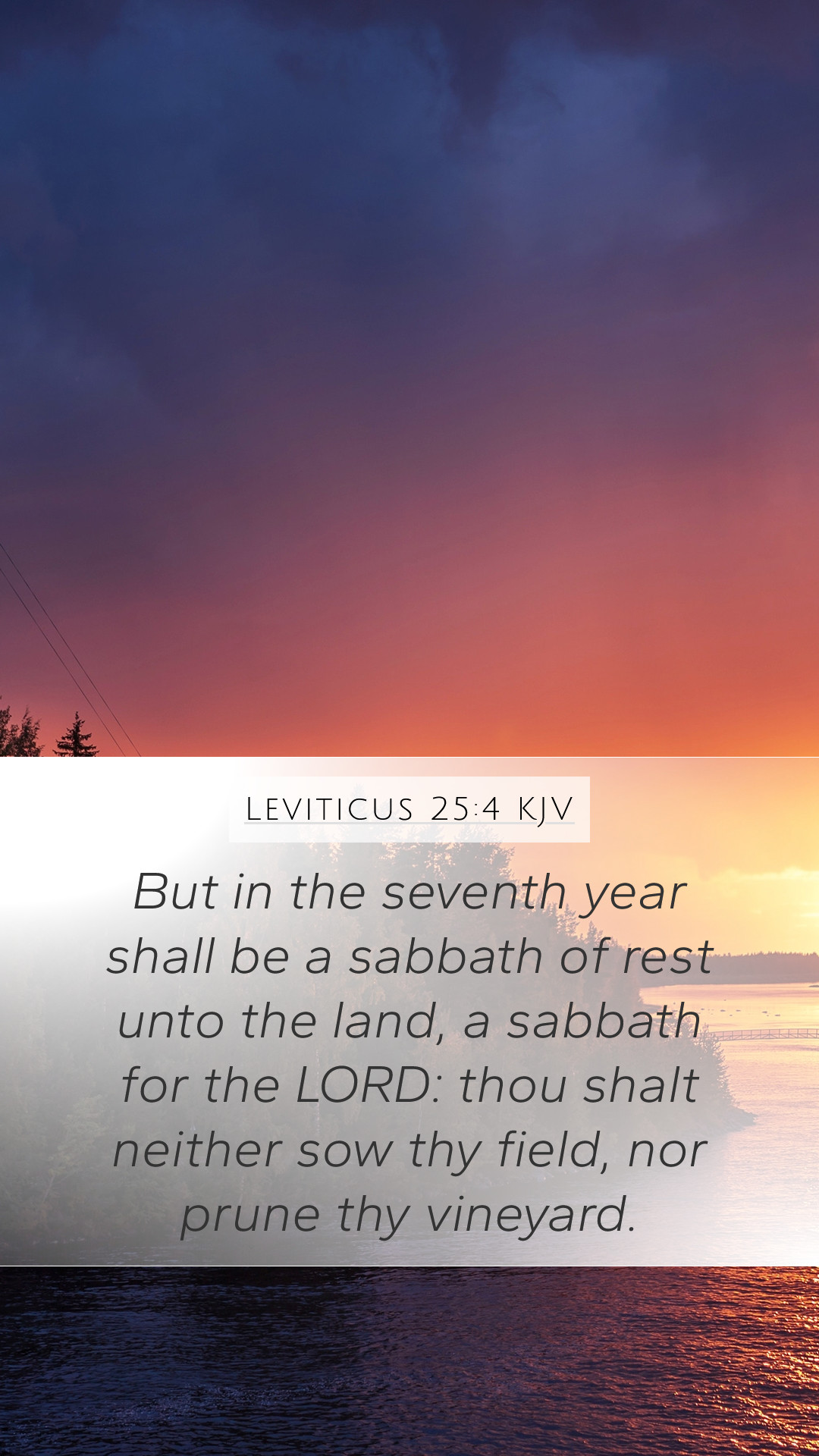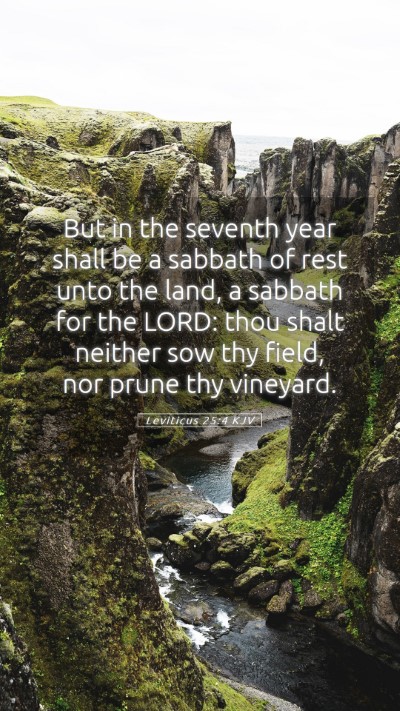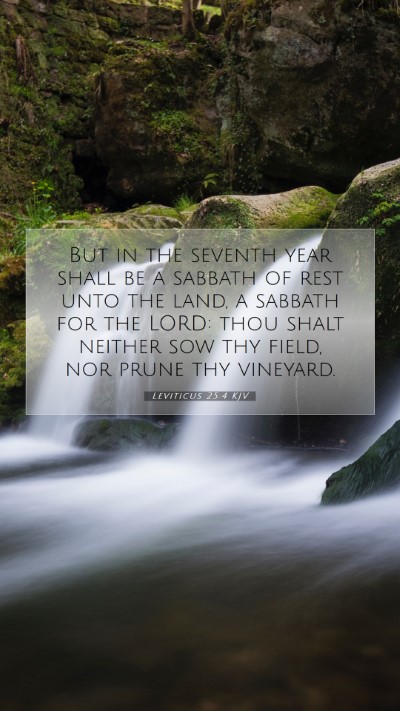Understanding Leviticus 25:4
Leviticus 25:4 is a significant verse in the Scriptures that reflects God's instructions regarding the Sabbath year, emphasizing rest for the land. Below, we explore a comprehensive analysis of this verse, integrating insights from renowned public domain commentaries to enhance our understanding.
Verse Text
Leviticus 25:4 (KJV): "But in the seventh year shall be a sabbath of rest unto the land, a sabbath for the Lord: thou shalt neither sow thy field, nor prune thy vineyard."
Verse Commentary
This verse is part of the larger context of the **Jubilee Laws**, where God outlines specific practices to ensure the wellbeing and sustainability of both the land and the people of Israel.
Matthew Henry's Commentary
Matthew Henry explains that this instruction signifies a divine ordinance that not only honors the created order but also teaches the Israelites the importance of rest. The land, like humanity, requires rejuvenation and renewal. In this respect, the Sabbath for the land symbolizes God’s provision and care.
Albert Barnes' Commentary
Albert Barnes emphasizes the perpetual nature of rest that this command establishes. The seventh year of rest for the land reflects a broader spiritual principle of dependency on God rather than solely on human effort. Barnes notes that this year of rest fosters a reliance on divine providence, allowing the land to recover and the community to focus on spiritual matters.
Adam Clarke's Commentary
Adam Clarke focuses on the practical implications of this verse, including the agricultural practices of the Israelites. He argues that the observance of the Sabbath for the land not only promotes sustainable farming but also fosters community and familial bonds as people come together in shared worship and reflection during this year.
Broad Themes of Leviticus 25:4
- Divine Rest: This verse emphasizes the concept of rest ordained by God, which applies both to the land and the people.
- Sustainability: The command reflects an early understanding of sustainable agricultural practices, encouraging the Israelites to care for the environment.
- Spiritual Reflection: The Sabbath year acts as a time for spiritual reflection, enabling the community to reconnect with God and their spiritual heritage.
- Community Wellbeing: Enforcing rest days contributes to the overall wellbeing of the community, allowing for equitable distribution of resources over time.
Cross References
Leviticus 25:4 is related to other significant Scripture passages, including:
- Exodus 23:10-11: Discusses the concept of allowing the land to rest every seventh year.
- Deuteronomy 15:1-2: Talks about the debt release every seventh year, reflecting God's plan for social justice.
- Isaiah 58:13-14: Highlights the blessings of keeping the Sabbath, linking rest with spiritual fulfillment.
Applications for Today
Understanding Leviticus 25:4 offers valuable lessons applicable to modern readers:
- Rest and Rejuvenation: Just as the land requires rest, individuals and communities today must prioritize rest to maintain physical and mental health.
- Sustainable Practices: The emphasis on caring for the land encourages current agricultural practices to reflect sustainability and respect for creation.
- Spiritual Reflection: Sabbath observance is not only for physical rest but also for spiritual upkeep and reflection, essential in the fast-paced life we lead today.
Conclusion
Leviticus 25:4 serves as a rich verse that intertwines practical agricultural guidelines with profound spiritual truths. By engaging with this verse through various biblical commentary insights, readers can deepen their understanding of God's intentions regarding rest and care for creation. Whether through Bible study groups, online Bible study, or personal reflection, this verse offers meaningful insights that resonate throughout time.
For those searching for more context and deeper insights, engaging with resources and guides that focus on Old Testament laws and their relevance today can be particularly beneficial, enriching one's Bible study experience.


